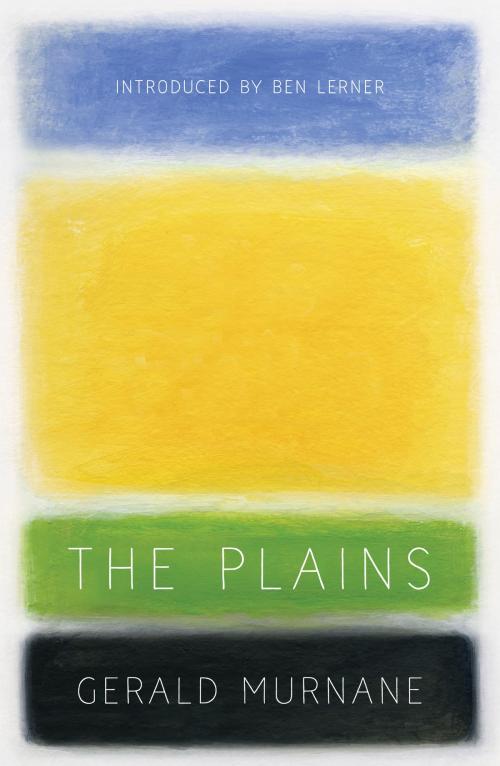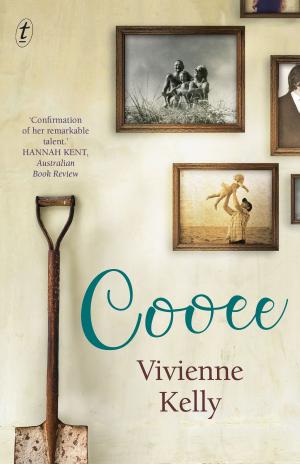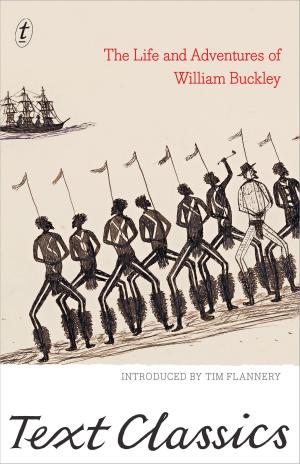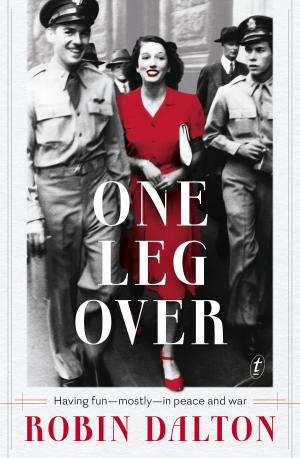| Author: | Gerald Murnane | ISBN: | 9781925410266 |
| Publisher: | The Text Publishing Company | Publication: | April 3, 2017 |
| Imprint: | Text Publishing | Language: | English |
| Author: | Gerald Murnane |
| ISBN: | 9781925410266 |
| Publisher: | The Text Publishing Company |
| Publication: | April 3, 2017 |
| Imprint: | Text Publishing |
| Language: | English |
This is the story of the families of the plains—obsessed with their land and history, their culture and mythology—and of the man who ventured into their world.
First published in 1982, The Plains is a mesmerising work of startling originality.
This handsome new hardback edition is introduced by Ben Lerner, author of the internationally acclaimed novels Leaving the Atocha Station and 10:04, and a work of criticism, The Hatred of Poetry.
Gerald Murnane was born in Melbourne in 1939. He has been a primary teacher, an editor and a university lecturer. His debut novel, Tamarisk Row (1974), was followed by ten other works of fiction, including The Plains and most recently Border Districts. In 1999 Murnane won the Patrick White Award and in 2009 he won the Melbourne Prize for Literature. He lives in western Victoria.
'A distinguished, distinctive, unforgettable novel.'Shirley Hazzard
‘… a piece of imaginative writing so remarkably sustained that it is a subject for meditation rather than a mere reading … In the depths and surfaces of this extraordinary fable you will see your inner self eerily reflected again and again.’Sydney Morning Herald
‘The Plains has that peculiar singularity that can make literature great.’Ed Wright, Australian, Best Books of 2015
‘Murnane touches on foibles and philosophy, plays with the makings of a fable or allegory, and all the while toys with tone, moving easily from earnest to deadpan to lightly ironic, a meld of Buster Keaton, the Kafka of the short stories, and Swift in A Modest Proposal.…A provocative, delightful, diverting must-reread.’ STARRED Review, Kirkus Reviews**
‘Known for its sharp yet defamiliarizing take on the landscape and an aesthetic of purity historically associated with it, The Plains is uniformly described as a masterpiece of Australian literature. Look closer, though, and it's a haunting nineteenth-century novel of colonial violence captured inside the machine's test-pattern image—a distant, unassuming house on the plains.’ BOMB
This is the story of the families of the plains—obsessed with their land and history, their culture and mythology—and of the man who ventured into their world.
First published in 1982, The Plains is a mesmerising work of startling originality.
This handsome new hardback edition is introduced by Ben Lerner, author of the internationally acclaimed novels Leaving the Atocha Station and 10:04, and a work of criticism, The Hatred of Poetry.
Gerald Murnane was born in Melbourne in 1939. He has been a primary teacher, an editor and a university lecturer. His debut novel, Tamarisk Row (1974), was followed by ten other works of fiction, including The Plains and most recently Border Districts. In 1999 Murnane won the Patrick White Award and in 2009 he won the Melbourne Prize for Literature. He lives in western Victoria.
'A distinguished, distinctive, unforgettable novel.'Shirley Hazzard
‘… a piece of imaginative writing so remarkably sustained that it is a subject for meditation rather than a mere reading … In the depths and surfaces of this extraordinary fable you will see your inner self eerily reflected again and again.’Sydney Morning Herald
‘The Plains has that peculiar singularity that can make literature great.’Ed Wright, Australian, Best Books of 2015
‘Murnane touches on foibles and philosophy, plays with the makings of a fable or allegory, and all the while toys with tone, moving easily from earnest to deadpan to lightly ironic, a meld of Buster Keaton, the Kafka of the short stories, and Swift in A Modest Proposal.…A provocative, delightful, diverting must-reread.’ STARRED Review, Kirkus Reviews**
‘Known for its sharp yet defamiliarizing take on the landscape and an aesthetic of purity historically associated with it, The Plains is uniformly described as a masterpiece of Australian literature. Look closer, though, and it's a haunting nineteenth-century novel of colonial violence captured inside the machine's test-pattern image—a distant, unassuming house on the plains.’ BOMB















